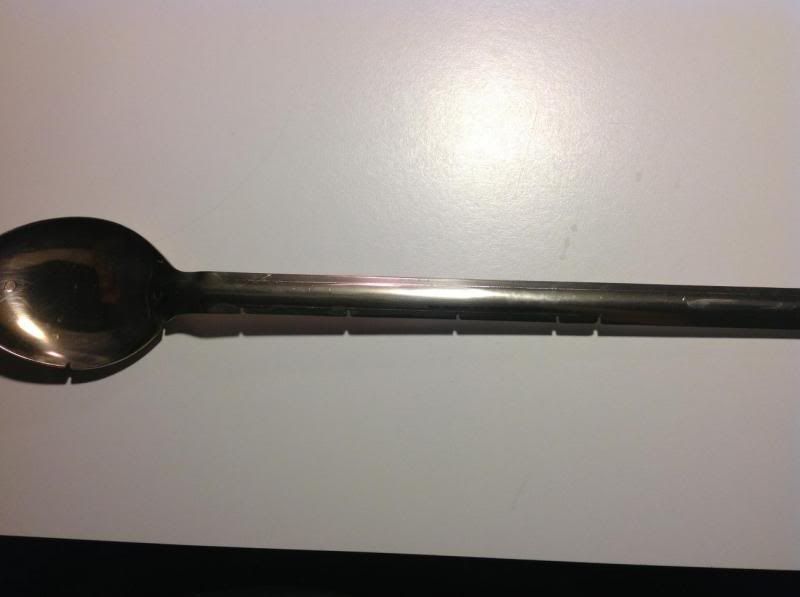I've had a few batches where I've had low OG from too much water and am not good enough at eye balling it. I took an extra spoon, filled up my kettle gallon by gallon and marked it on the spoon. I then took my trusty old angle grinder and cut out a few notches...
This should help prevent it. I marked it for each gallon and then at 6.25

This should help prevent it. I marked it for each gallon and then at 6.25



